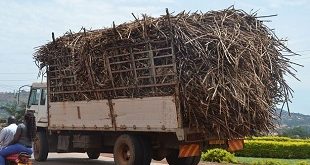
Kampala, Uganda | THE INDEPENDENT | The milk industry has been one of the most stable and fastest growing of the country’s production sectors in recent years but claims of unsafety of the products last week have unnerved the industry leaders.
While appearing on television, Dr Sylvia Anguabua Baluka, a Makerere University lecturer said that the milk in the Ugandan market was unsafe because of the way some farm activities are carried out.
The lecturer at the College of Veterinary Medicine, Animal Resources & Biosecurity, Livestock and Industrial Resources specifically noted that farmers hardly recognize the ‘withdrawal period’- the time length recommended before the animal product is consumed after treating the animal with drugs. Most manufacturers of animal and plant drugs warn against consuming the product until after two to three weeks after the drugs have been applied.
Dr Baluka said in this case, the consumers are at risk of consuming the drugs in smaller or residue amounts, which may in the long run cause body resistance to treatment and other effects. The Dairy Development Authority-DDA, the agency responsible for monitoring and regulating the industry, says the lecturer’s statements were based on little information about the regulatory regime.
DDA Executive Director Dr Michael Kasiime says they have tried to engage her in a discussion to find out what could be missing.
Several measures have been put in place to ensure the safety of the milk and other dairy products, not only for the local consumers but also for the export market. These include the registration of dairy businesses including milk collection centres, sales outlets, transporters and exports and importers, an inspection of the handling premises, equipment and tankers, as well as conducting spot checks on products on the market.
Kansiime told journalists in Kampala that using mobile laboratories, they do road inspection checks and that milk that is found lacking in safety standards is destroyed at the expense of the owner.
He says their market inspection activities include all milk dealers, importers, exporters and outlets like shops and supermarkets and other premises, especially those selling raw milk. He boasts of having some of the best labs globally to the effect that samples are drawn from other countries for testing in Uganda’s labs.
On those found violating the safety standards of the products, Kansiime says there are penalties including six months imprisonment or a fine not exceeding five currency points or both. This according to him, is one of the reasons the country has maintained and expanded the milk market to as far as Europe, the USA and Japan, adding that these will not hesitate to close if adulteration is detected in the milk.
The country produced 2.81 billion litres in 2021. Close to 80 per cent of the milk is put onto the market, while the rest (550 million litres) is consumed on the farm, according to records at DDA. Uganda exports just about 10 per cent of the milk produced, after processing it into various products like powder formula, yoghurt, cheese, butter, ghee and casein, among others.
Export markets included the East African Community, COMESA and Southern African countries, Malaysia, India, USA, Japan, Oman, Nepal, Syria, Bangladesh and the United Arab Emirates. Dr Kansiime said export earnings from milk dropped to 196.5 billion Shillings in 2019/2020 because of the lockdowns in Uganda and in the export markets but picked up in 2020/21 to 358.6 billion Shillings.
*****
URN
 The Independent Uganda: You get the Truth we Pay the Price
The Independent Uganda: You get the Truth we Pay the Price




Hm
There is evidence of adulteration and I fectious agents in Milk sampled from outlets
Check the Institutional repository for student dissertations